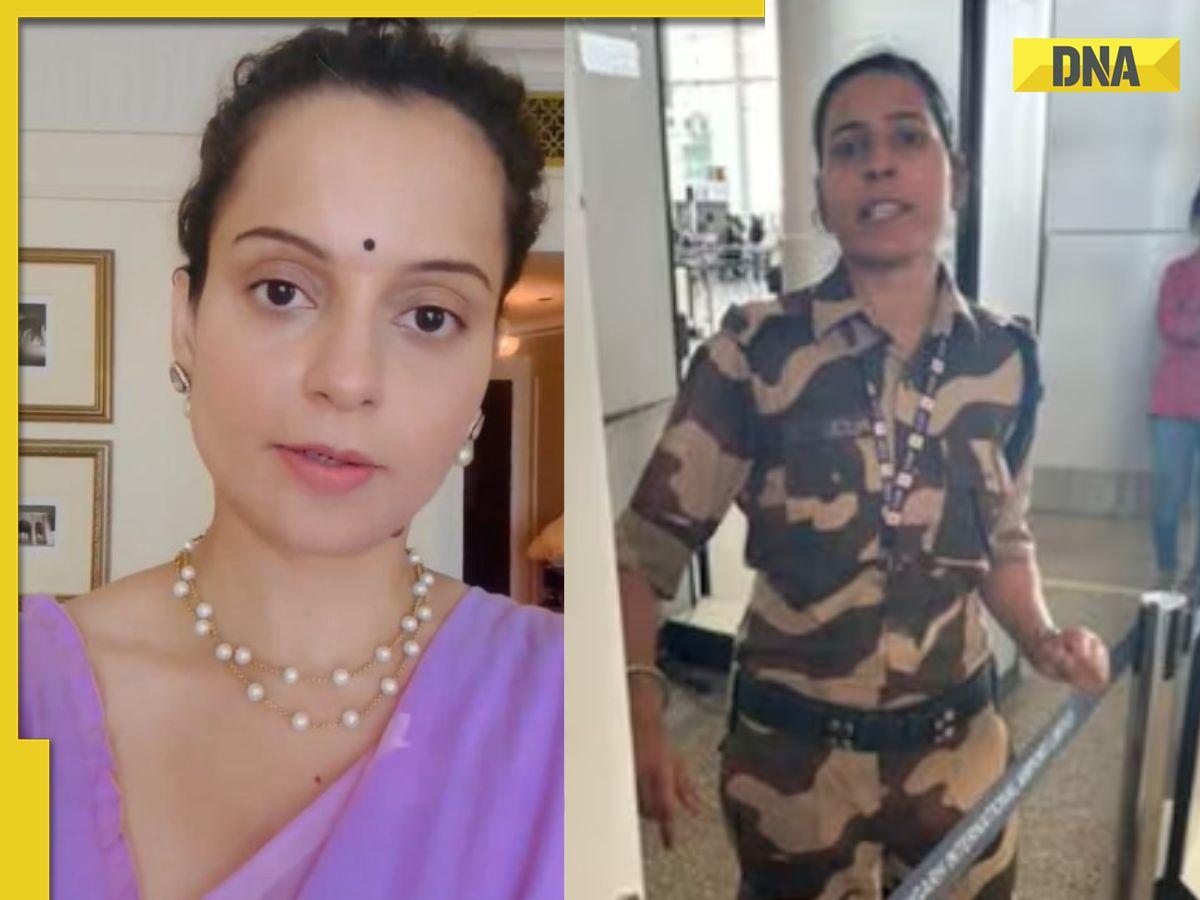
In a shocking incident at Chandigarh Airport, Kangana Ranaut, the newly elected Member of Parliament (MP) from Himachal Pradesh’s Mandi constituency, was allegedly slapped by a woman official of the Central Industrial Security Force (CISF). The officer involved in the altercation, Kulwinder Kaur, reportedly slapped Ranaut after being agitated by an old remark made by the actor during the farmer’s protest.
Following the incident on Thursday, the CISF took swift action and suspended Kulwinder Kaur. An FIR has also been lodged against her. Ranaut, who had just disembarked in Delhi, addressed the altercation on her Instagram account, reassuring her followers of her safety. “I am safe. I am perfectly fine. The incident happened at the security check-in. The woman guard waited for me to cross. She then came from the side and hit me. She started throwing expletives. I asked why she hit me. She said ‘I support farmers’. I am safe, but my concern is terrorism is rising in Punjab. How do we handle that?” Ranaut shared.
This incident has ignited a rigorous debate on the adequacy of security measures provided to elected MPs in India. While there are well-defined protocols for safeguarding high-profile offices such as the President, Vice President, and Prime Minister as prescribed in the ‘Blue Book’ issued by the Ministry of Home Affairs, security arrangements for other MPs vary and are based on threat assessments outlined in the ‘Yellow Book’ titled ‘Security Arrangements for the Protection of Individuals’.
Security protection for MPs can be provided by the Central Government but is contingent on a thorough threat assessment by security agencies.
. Each state in India has its own set of guidelines to ensure the safety and security of Members of Parliament residing within its jurisdiction. The discretion to provide security to someone who does not fall under designated categories often lies with the state government, due to the constitutional mandate that maintains ‘law and order’ as a state responsibility.
The Special Protection Group (SPG) and other categories of security such as Z+, Z, Y, and X provide gradated levels of protection to VVIPs. The SPG, established in 1985 following the assassination of Prime Minister Indira Gandhi, is responsible for the security of the Prime Minister and their immediate family under the Special Protection Group Act, 1988. This protection extends to former Prime Ministers and their immediate family members for a period of five years from the end of their term.
Beyond the SPG, the X Category consists of two Personal Security Officers (PSOs) and represents the fundamental level of VIP protection. The Y Category includes a stationary armed guard at the residence, intensified protection during twilight hours, and an additional PSO armed with a 9 mm pistol during daylight alongside a second PSO equipped with a Sten gun. The Y+ Category offers more enhanced protection as deemed necessary based on the perceived threat level.
Moving up the ladder, the Z Category protection entails up to eight armed static guards at the protectee’s residence. Protection details include continuous PSOs, extensive screening, road journey escorts, and a provision for a bulletproof vest for the protectee. The highest level, Z+ Category, grants these individuals the highest level of security with mobilizing National Security Guard (NSG) personnel, a bulletproof car, and round-the-clock escorts.
Kangana Ranaut’s recent experience highlights critical concerns regarding the effectiveness and implementation of these security measures. While necessary actions have been taken against the CISF officer involved, the incident underscores the need to reassess and possibly reinforce the security protocols for public representatives in India.
In light of rising concerns, it is essential for both state and central governments to work cohesively in ensuring that security arrangements are not only comprehensive but also adaptable to the evolving threat landscape. As public servants and representatives, MPs deserve robust protection to perform their duties without fear, ensuring the seamless functioning of the country’s democratic fabric.
Stay tuned for further updates on this developing story and more on elected representatives’ security measures. The DNA app is now available for download on the Google Play Store. Please download the app and share your feedback with us.












